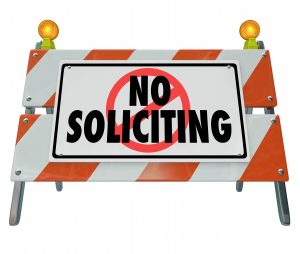
In late April 2016, the Association of Professional Responsibility Lawyers (“APRL”) recommended changes to the anti-solicitation provisions of the ABA Model Rules of Professional Conduct. See APRL, Regulation of Lawyer Advertising Committee, Supplemental Report (Apr. 26, 2016). APRL’s proposal defines “solicitation” as follows:
A solicitation is a targeted communication initiated by or on behalf of a lawyer, that is directed to a specific person and that offers to provide, or can reasonably be understood as offering to provide, legal services for a particular matter.
It would prohibit “in person” solicitation by a lawyer or the lawyer’s agent in a “face-to-face” or “live telephone” context, “when a significant motive for doing so is the lawyer’s pecuniary gain.” However, it would expressly permit solicitation:
(1) if the person solicited is a lawyer or sophisticated user of legal services;
(2) if the solicitation is done pursuant to a court-ordered class action notification; or
(3) if the person solicited has a family, close personal, or prior professional relationship with the lawyer.
This is a good proposal for at least two reasons. First, if adopted by the ABA, the proposal would remove the provision of the current model rule that applies the anti-solicitation rule to chat-room communications. The current rule is just silly; chat-room contacts are not inherently coercive and can readily be terminated by either participant.
Second, it would expressly allow a lawyer to solicit a “sophisticated” user of legal services, which it defines as “an individual who has had significant dealings with the legal profession or who regularly retains legal services for business purposes.” Such a sophisticated user does not need the protection of lawyer-conduct standards; such a user can protect herself. Moreover, such solicitations happen routinely and are never prosecuted by disciplinary authorities.
AAPL hopes to present these proposals to the ABA House of of Delegates in 2017.
